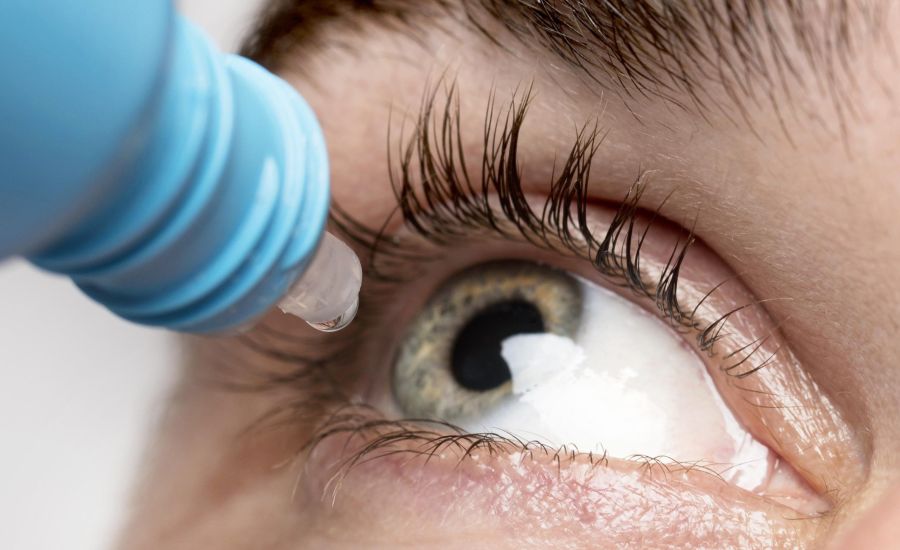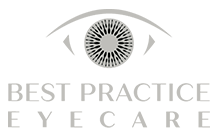Dry Eye Treatment: What Are Your Options?

Why Do I Have Dry Eyes?
In an ideal world, treating dry eyes would be simple—just add some moisture, and the issue would be resolved. In reality, it’s not quite that easy.
Our eyes are typically lubricated by our tears which prevent the surface from drying out. With each blink, a thin layer of tears coasts our eye – this layer of tears is protected by an even thinner coating of lipids to preserve the film. This tear film must stay intact in between blinks in order to preserve ocular comfort and health.
Dry eye syndrome is caused when your eyes don’t produce enough of the correct sort of tears. This may occur if you don’t generate enough tears to keep your eyes moist, if your tears are poor quality or if your tears don’t linger in your eyes for a long enough period of time. The surface of the eyeball may eventually get damaged due to the resultant dryness.
Anyone can develop dry eye, but it is more prevalent as we age since our ability to produce as many tears decreases. People with arthritis and postmenopausal women are also more likely to get dry eyes. Both certain medical disorders and several drugs have the potential to cause dry eye. Other causes include contact lens use, recent surgeries, irritants such as smoking, infrequent blinking such as long periods of screen time and climatic conditions – our eyes struggle in air-conditioned spaces like workplaces or shops.
What Can I Expect: Symptoms and Diagnosis
Symptoms of dry eyes include stinging, itchiness, blurred vision, redness, tired eyes, grittiness or the feeling of something foreign in your eye.
There are many tests and procedures which can be used in diagnosing dry eyes, your Best Practice Eyecare specialist will administer a non-invasive, simple eye exam which covers the following:
- Comprehensive eye examination: a complete evaluation of the overall health of your eye and your complete medical history.
- Measurement of the volume of your tears: called a Schirmer tear test, blotting paper strips will be placed under your lower eyelid to measure the amount of tears collected during a set time. A dye test alternative may also be used.
- Determination of tear quality: special dyes will be used to evaluate the condition of the surface of your eyes. Specific cornea staining patterns and evaporation durations will help inform this.
- Osmolarity test: measures the composition of your tears to determine how much water is in your tears.
From these tests, your specialist dry eye doctor can determine whether you have dry eye disease and what treatment is required.
What Are My Options?
Dry eye disease is a complex condition, chronic in nature; while we can’t cure it, we can manage its symptoms. There is a range of treatment options including medications, home remedies, lifestyle changes and specialised medical conditions. Dr Karpa and his team of specialists may recommend the following to increase tear production, maintain film volume and decrease tear evaporation:
- Eye Drops: these can be natural such as Manuka Honey eye drops to reduce inflammation, over-the-counter eye drops – also known as ‘artificial tears’ – or even prescription eye drops which act as anti-inflammatories and can help stimulate tear production.
- Eyelid washes: washes such as hypochlorous acid washes or tea tree foams help to reduce bacteria in and surrounding the eye to reduce eyelid inflammation.
- Lifestyle changes: simple adjustments such as avoiding smoke, wind, long periods of screen time and using a humidifier to add more moisture to the air in your home can minimise the symptoms of dry eyes. Wearing sunglasses in our strong Queensland sun and getting enough sleep and water intake are all essential changes to help your dry eyes.
- Tear duct plugs (Punctal plugs): to increase tear duration, a specialist from Best Practice Eyecare, Dr Karpa, can place special plugs into the inner corners of your eyes to keep the tears in your eyes for longer.
- Specialised contact lenses: scleral lenses, or bandage lenses, may be recommended as contact lenses which protect the eyes’ surface and keep moisture in.
- Surgery: in some instances, the lower eyelid may be too loose leading to quick drainage of tears, a specialised surgery can be done to help remedy this.
- Light therapy: an Intense Pulsed Light therapy treatment and eyelid massage may help dry eye symptoms.
There are also a range of alternative medicines which may assist in relieving dry eye symptoms but which require further medical study. These include:
- Omega fatty acids: this has been a major source of contention as clinical trials show no signs of benefits from using these supplements, while other doctors contest some of their patients find great benefits from it. Regardless it’s something worth trying – and you can discontinue if you personally see no benefit.
- Manuka Honey or Castor Oil eye drops: these may reduce tear evaporation and inflammation.
While there is a range of mitigation treatment options, figuring out which strategies and tools work best for you is something you will have to discuss with your specialist. The team at Best Practice Eyecare Sunshine Coast are here to help you through the diagnosis and treatment process so you can stay as informed as possible and we can work together to find the best arrangement for you.
Follow this link if you’d like to read more about Dry Eyes and book an appointment with the Best Practice Eyecare team!
Where Best Practice Eyecare comes in…
At Best Practice Eyecare, our ophthalmologist Sunshine Coast team is led by Dr Karpa, a Fellow of RANZCO, a comprehensive Ophthalmologist and expert in Ophthalmology Sunshine Coast. Whatever the diagnosis, the team at Best Practice Eyecare can help you identify the best treatment option for your case, understand your condition, help you manage it and stop the progression of the disease.
Based in the beautiful coastal suburb of Golden Beach, Dr Karpa and this expert team provide eye care services of the highest standard with a relaxed, friendly patient-focused approach. We service patients across all areas of the Sunshine Coast including Caloundra, Kawana, Mooloolaba, and Maroochydore. As a leading cataract surgeon, eye specialist and ophthalmologist Sunshine Coast, Dr Karpa treats a wide range of eye conditions such as cataracts, glaucoma, macular degeneration, dry eyes, and flashes & floaters.

Best Practice Eyecare Ophthalmologists
Based on the Sunshine Coast, we provide ophthalmologist, eye care and surgical services of the highest standard. We treat and manage a wide range of eye conditions including cataracts, glaucoma and macular degeneration and more.

